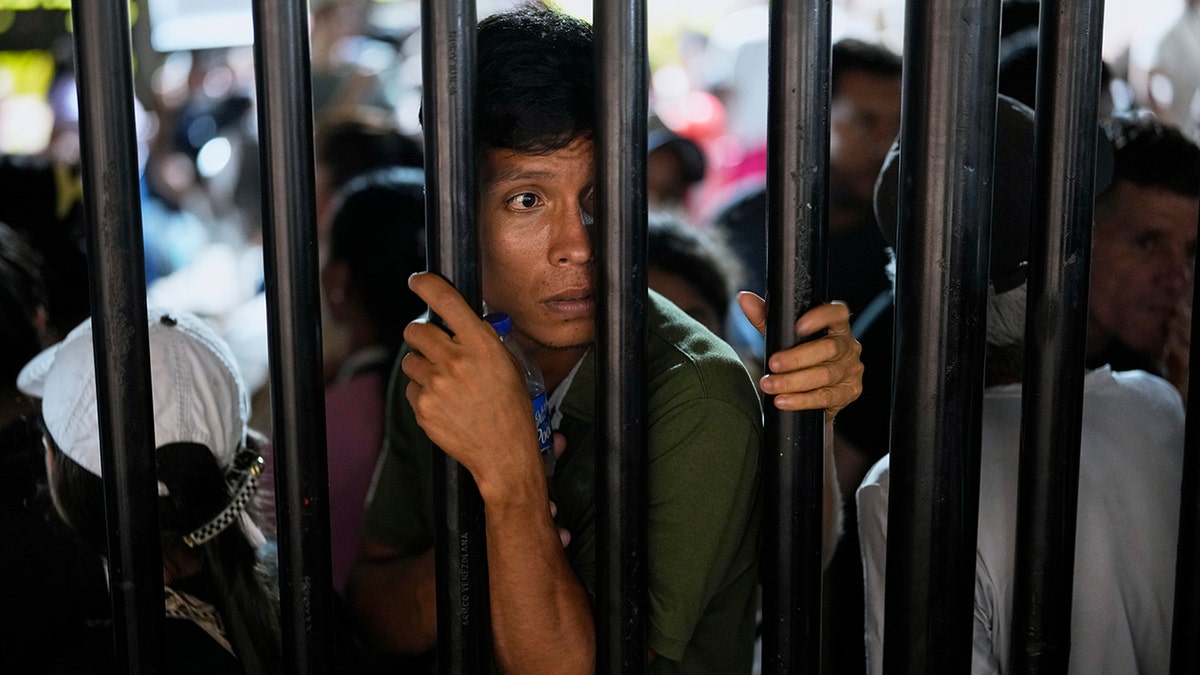Over the weekend, a surge of violence in northeastern Colombia claimed the lives of more than 80 individuals and injured 20 others, as reported by North Santander Governor William Villamizar. This wave of violence comes on the heels of unsuccessful peace negotiations between the Colombian government and the National Liberation Army (ELN). The attacks have triggered a mass exodus, with thousands seeking refuge from the conflict.
A government ombudsman report revealed that community leader Carmelo Guerrero and seven other individuals involved in peace efforts are among the deceased. The attacks, concentrated in the Catatumbo region bordering Venezuela, also resulted in the kidnapping of at least three peace negotiators.

The image above depicts individuals displaced by the violence in the Catatumbo region, lining up for shelter at a stadium in Cúcuta, Colombia. The clashes in this region are primarily between the ELN and former members of the Revolutionary Armed Forces of Colombia (FARC).
Frightened residents have been forced to abandon their homes and possessions, with many seeking shelter in the surrounding mountains or government-run facilities. Juan Gutiérrez, who fled with his family to a temporary shelter in Tibú, recounted their harrowing escape, leaving everything behind amidst the crossfire. He expressed hope for government assistance, emphasizing their vulnerable situation.
The Colombian army has been actively involved in rescue operations, evacuating dozens of people, including families and their pets. Defense Minister Iván Velásquez visited Cúcuta to assess the security situation and advocate for the demobilization of armed groups. He underscored the government's commitment to safeguarding communities and deploying troops throughout the affected region.
The government is also mobilizing resources to provide essential supplies like food and hygiene kits to approximately 5,000 people in Ocaña and Tibú. Governor Villamizar publicly appealed for aid, highlighting the desperate plight of families fleeing the violence with minimal belongings.
This recent outbreak of violence follows the Colombian government's suspension of peace talks with the ELN – the second such instance in less than a year. The government has called for a cessation of hostilities and access to the region to deliver humanitarian aid. Local officials like José Trinidad have expressed growing concerns about the escalating humanitarian crisis and urged insurgent groups to negotiate a resolution to protect civilians.
The conflict stems from a power struggle between the ELN and ex-FARC members over the Catatumbo region, a strategically important area known for its coca leaf production. The ELN claims the clashes were a necessary response to attacks on the civilian population by former FARC members. They attribute several killings in the area to the ex-FARC rebels, including the tragic death of a family with a 9-month-old infant.
The army has been working to establish a humanitarian corridor between Tibú and Cúcuta to ensure the safe passage of displaced individuals. Specialized urban troops have also been deployed to vulnerable municipal capitals to address the widespread fear and insecurity. The ELN has engaged in multiple unsuccessful peace negotiations with President Gustavo Petro's administration, with talks consistently undermined by recurring violence. The ELN's demand for recognition as a political rebel organization remains a contentious point.
Comments(0)
Top Comments